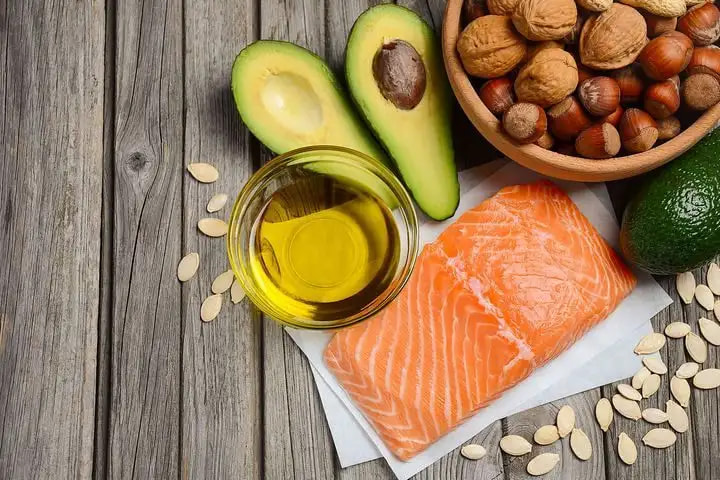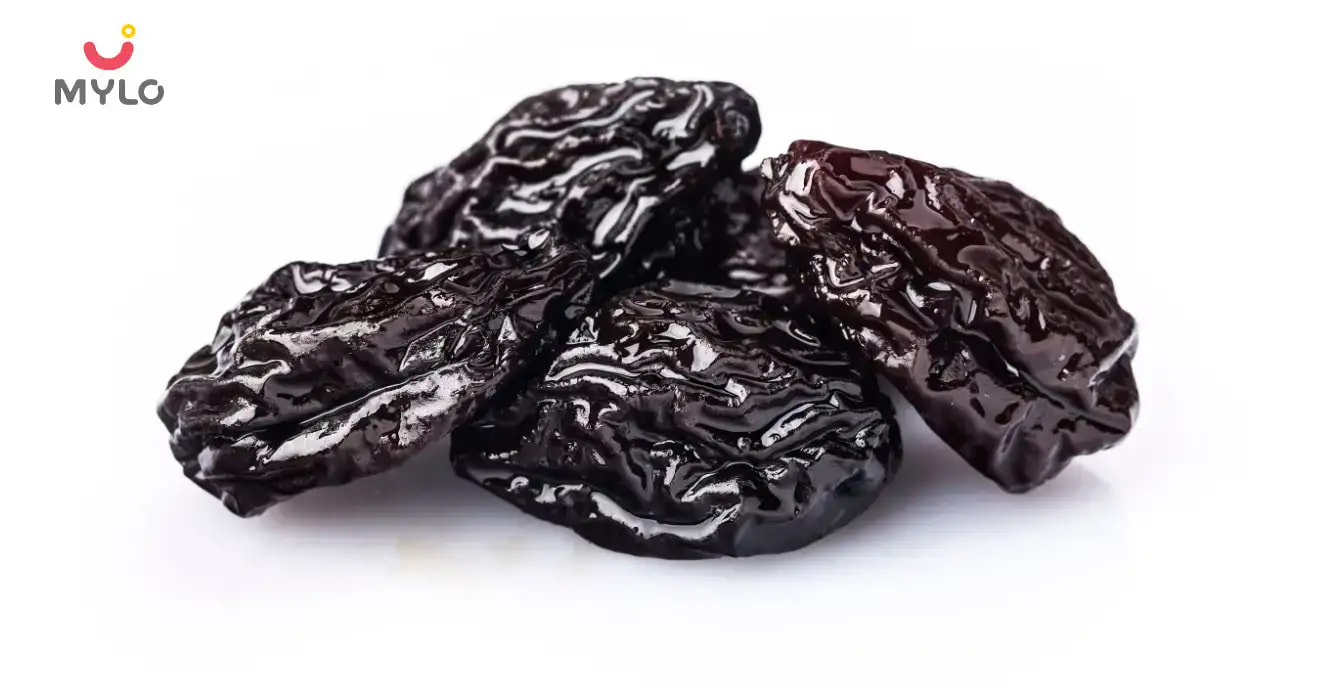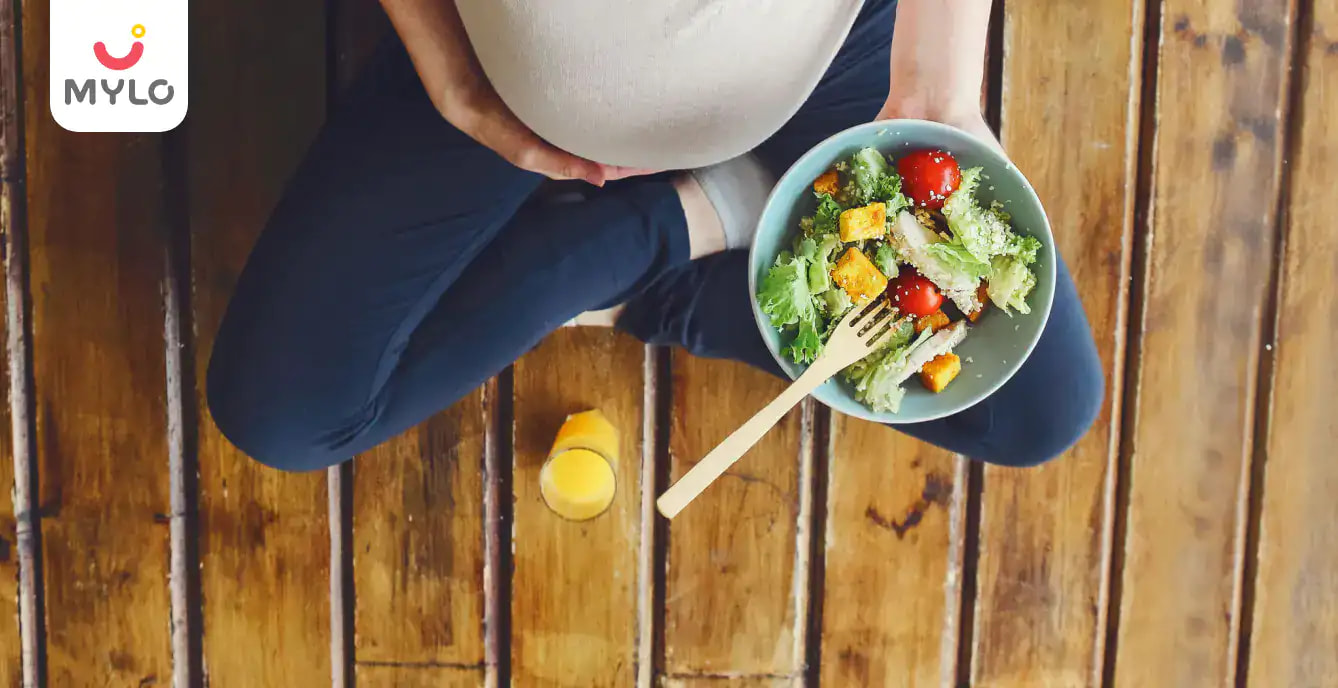Home

Vitamins & Supplements

Your pregnancy diet guide in the 33rd week of pregnancy to ensure holistic wellness for you and your little one.
In this Article
Vitamins & Supplements
Your pregnancy diet guide in the 33rd week of pregnancy to ensure holistic wellness for you and your little one.
Updated on 28 March 2023



Medically Reviewed by
Dt. Mansi Goyal
Specializes in Critical Gestational Diabetes, PCOS Patients - BSC| MSC (Home Science, Food & Nutrition)
View Profile

Congratulations on entering 33rd week and now you are inching closer to meeting your mini-me. You might be feeling an array of emotions from anxiety to happiness anf feeling low all together. During the 33rd week of pregnancy, the baby is growing and developing rapidly, and it is crucial to ensure that the mother is getting the necessary nutrients to support this growth. A healthy and balanced diet is essential to provide the required nutrients for both the mother and the baby. In this article, we will discuss diet and nutrition during the 33rd week of pregnancy.
Calorie Requirements
During the third trimester, the calorie requirement of the mother increases to support the growth and development of the baby. It is recommended that pregnant women consume an additional 300-500 calories per day during the third trimester. These calories should come from nutrient-dense foods like fruits, vegetables, whole grains, lean proteins, and healthy fats.
Protein
Protein is crucial during pregnancy as it is essential for the growth and development of the baby. It is recommended that pregnant women consume around 75-100 grams of protein per day. Good sources of protein include lean meat, poultry, fish, eggs, beans, lentils, nuts, and seeds.
Calcium
Calcium is essential for the development of the baby's bones and teeth. It is recommended that pregnant women consume 1,000-1,300 milligrams of calcium per day. Good sources of calcium include milk, cheese, yogurt, leafy greens, and fortified foods.
Iron
Iron is essential during pregnancy as it is required to make hemoglobin, which carries oxygen to the baby. It is recommended that pregnant women consume around 27 milligrams of iron per day. Good sources of iron include red meat, poultry, fish, beans, lentils, fortified cereals, and leafy greens.
Folate
Folate is essential for the growth and development of the baby's brain and spinal cord. It is recommended that pregnant women consume around 600-800 micrograms of folate per day. Good sources of folate include leafy greens, fortified cereals, beans, and lentils.
Omega-3 Fatty Acids
Omega-3 fatty acids are essential for the development of the baby's brain and eyes. It is recommended that pregnant women consume around 200-300 milligrams of omega-3 fatty acids per day. Good sources of omega-3 fatty acids include fatty fish like salmon, tuna, and sardines, as well as flaxseeds and chia seeds.
Foods to Avoid During pregnancy
There are certain foods that should be avoided to reduce the risk of foodborne illness. These include raw or undercooked meat, poultry, and fish, unpasteurized dairy products, raw or undercooked eggs, and deli meats and hot dogs that have not been heated until steaming.
In conclusion, a healthy and balanced diet is crucial during the 33rd week of pregnancy to support the growth and development of the baby. Pregnant women should consume a variety of nutrient-dense foods, including lean proteins, whole grains, fruits, vegetables, and healthy fats. It is also important to avoid certain foods that may pose a risk of foodborne illness. If you have any questions or concerns about your diet during pregnancy, consult with your healthcare provider.
-
Continuous weight gain - around half a pound each week.
-
Adjustment of pupils to dim or bright light, similar to yours
-
Development of lungs
-
The amniotic fluid level now reaches to the maximum level, with no more room and less fluid to cushion, you may feel the baby’s kicks
How your body is changing during the 33rd week
-
You may experience muscle soreness as you carry a full-grown baby now
-
You are likely to feel false labour pains
-
As the milk producing glands grow larger, your overall breast size increases
-
You may continue to gain weight during the coming week
-
Also read: Guide: Following a vegetarian diet during third trimester of pregnancy
Staying healthy during the pregnancy period:
It is important to understand the do’s and don’ts. Make sure you do the following:
-
Monitor your water intake and keep yourself hydrated
-
Eat a nutritious and healthy diet
-
Stay active unless you experience pain
-
Maintain good oral hygiene
-
Ensure plenty of sleep and rest





Medically Reviewed by
Dt. Mansi Goyal
Specializes in Critical Gestational Diabetes, PCOS Patients - BSC| MSC (Home Science, Food & Nutrition)
View Profile


Written by
Loveleen Gupta
A working mother with more than two decades of experience in writing for the publishing industry and digital space, Loveleen Gupta loves dabbling in creative writing also. A graduate from Miranda House, she uses her personal experiences to express herself.
Read MoreGet baby's diet chart, and growth tips

Related Articles
RECENTLY PUBLISHED ARTICLES
our most recent articles

Illnesses & Infections
Heat Rash in Babies: Symptoms, Risks & Treatments

Scans & Tests
Amniocentesis: Meaning, Risks & Results

Umbilical Cord
Umbilical Cord: Risks, Benefits & Recovery

Stretch Marks
Stretch Marks Removal: Tips & Remedies

Fussy Baby
How Can Dads Calm A Fussy Toddler

General Father
How to prepare your older child for a new baby
- 5 Financial Moves You Must Make Before Your Baby Arrives
- Daddy-Baby bonding from Pregnancy to Childbirth: Top 7 tips for you
- How to prepare your child for pre-school
- I am pregnant, can I still breastfeed my toddler?
- My toddler has bad breath. what should I do?
- When will my toddler learn how to scribble or draw?
- Can loud volume affect my toddler's ears?
- Running & Jumping Milestones for your toddler
- Activities to keep an active toddler occupied at home
- Girls' growth chart: 24 to 36 months
- What to do if your toddler is overweight?
- Electric toothbrush for Toddlers: Is it safe?
- Teaching good eating habits to your kids
- How to Introduce Books to Your Child?


AWARDS AND RECOGNITION

Mylo wins Forbes D2C Disruptor award

Mylo wins The Economic Times Promising Brands 2022
AS SEEN IN

- Mylo Care: Effective and science-backed personal care and wellness solutions for a joyful you.
- Mylo Baby: Science-backed, gentle and effective personal care & hygiene range for your little one.
- Mylo Community: Trusted and empathetic community of 10mn+ parents and experts.
Product Categories
baby carrier | baby soap | baby wipes | stretch marks cream | baby cream | baby shampoo | baby massage oil | baby hair oil | stretch marks oil | baby body wash | baby powder | baby lotion | diaper rash cream | newborn diapers | teether | baby kajal | baby diapers | cloth diapers |








